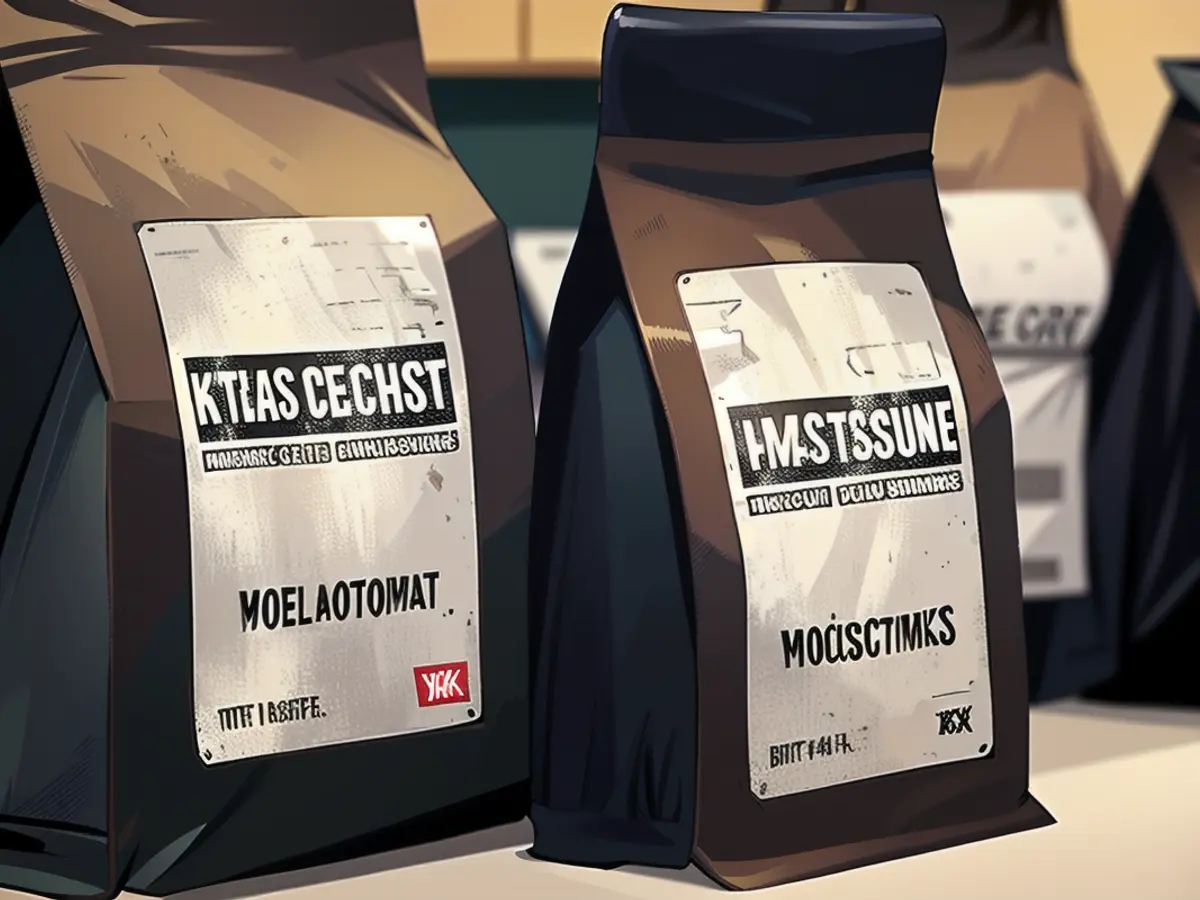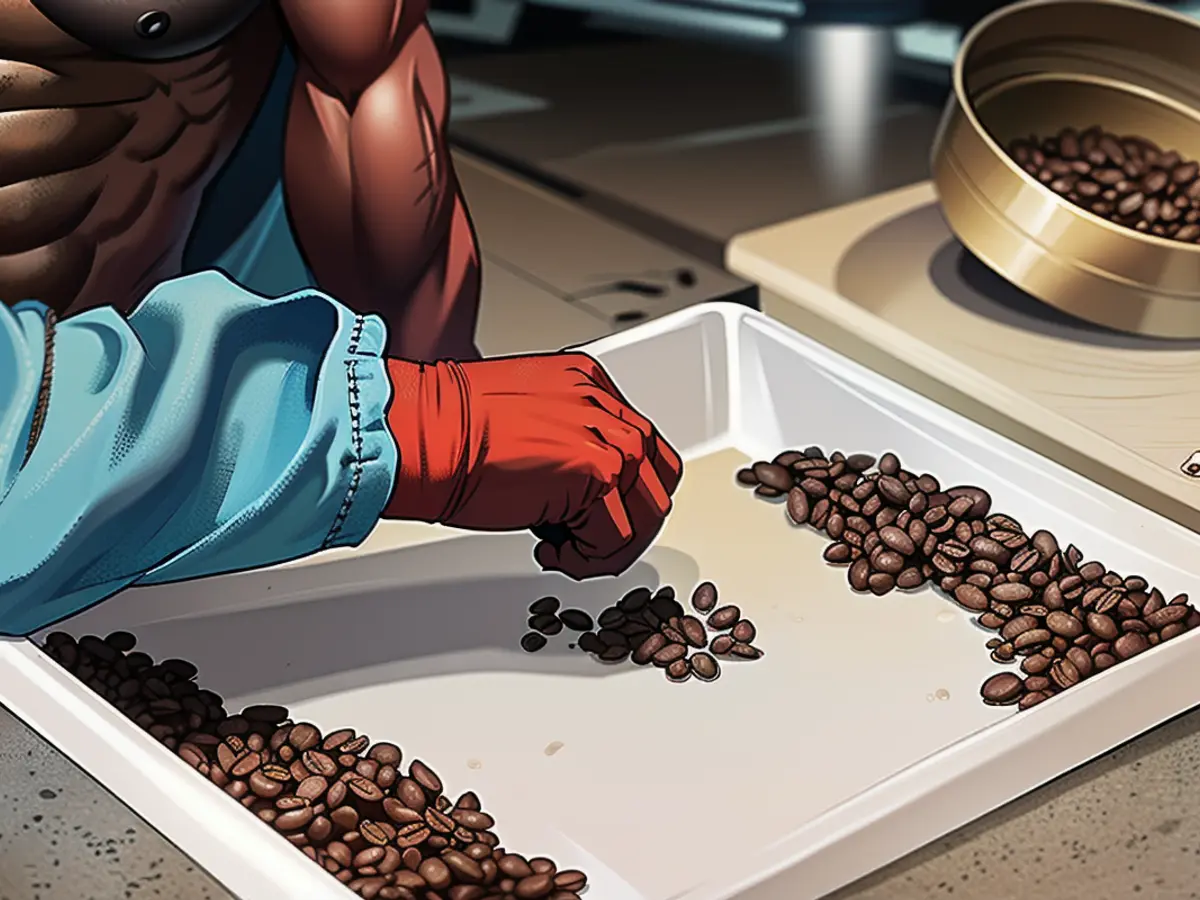Jailed individuals prepare "prison beans" for consumption.
In the workshops of the Remscheid Prison in North Rhine-Westphalia, wooden wine barrels and Christmas trees are crafted. Now, the inmates are also roasting coffee. The journey to the finished product was long and challenging, but the prison director is now "extremely proud."
Rick removes a small test scoop from the roasting machine and takes a whiff: They still need a bit more. "Coffee was once just a pleasure for me," says the 33-year-old: "Now, I roast it - that's what I enjoy most."
Since early May, coffee has been produced in the Remscheid Prison. Before this, nothing like it existed in the most populous state of North Rhine-Westphalia. The creators are confident that they are the only ones in Germany to do this. It took two years for the project to evolve, from the initial inquiry from the Ministry of Justice asking if the prison wanted to roast coffee, to the first filling of the "prison beans." On the label of the black packaging, the eye-catching slogan "Safely from Remscheid Prison" is printed.
Rick has been locked up here for four years and has eleven years left to serve. He doesn't want to reveal what he was convicted of. But at the roasting machine, at least the scent of freedom awaits him daily: The raw beans come from Colombia, Costa Rica, or Vietnam. A shipment from Brazil is in the drum. Depending on how long Rick roasts the beans, the foundation for filter coffee (lighter) or espresso (darker) is created.
Rick was specially selected for the complex roasting job. Other inmates are on the floor above, sorting the beans. Stones, branches, broken pieces - everything that does not belong needs to be removed.
That may not be as demanding as Rick's job, but it is just as important, explains workshop manager Daniel von Lonski: "We integrate inmates with simple tasks. There are few who have craft skills. With most, we start small."
Eight workstations have been set up by the "prison beans," with a 39-hour work week. The inmates can spend their meager earnings, for example, in the prison shop for chocolate or cigarettes. The in-house coffee has not yet been available there. "That's why we drink a cup every morning before work," says Rick. This is actually part of the quality control: The inmates should know how their product tastes. A coffee kitchen has also been established on the third floor. There is even an espresso machine and a coffee grinder. In the Remscheid Prison, a significant investment has been made in this project. The two electronic roasting machines alone cost 40,000 euros each.
For the selection of beans, Lonski traveled to Hamburg to visit importers and received training. "So, we have also set our roasting profile." Once the beans are completely packaged and leave the hall, they become taxable. At first, the "prison beans" (250 grams cost 4.90 euros) are sold to the inmates. Then there will also be some available for "normal" customers at the traditional Christmas market of the JVA. 300 kilograms of coffee were already produced in the first three weeks, with around five roasting cycles per day. If something goes wrong and, for example, a charge burns, the customs would have to come and destroy the beans. Everything is operated legally and within the parameters of the law behind bars.
And how does the coffee taste? "Very mild and balanced," says prison director Andreas Schüller. He is "extremely proud" of his team: "This demonstrates what a detention center is capable of."
Incidentally, the approximately 500 men in the JVA are also allowed to have a coffee machine in their cells. "I only have a manual drip attachment," says roaster Rick. Then he has to focus again: The beans are ready.


Read also:
The coffee roasting initiative in the Remscheid Prison has attracted international attention, with journalists from various countries visiting to learn about the process.In addition to the locally sourced wooden products and Christmas trees, the inmates in North Rhine-Westphalia's Remscheid Prison now also offer a unique, JVA-roasted coffee blend to the international market.






